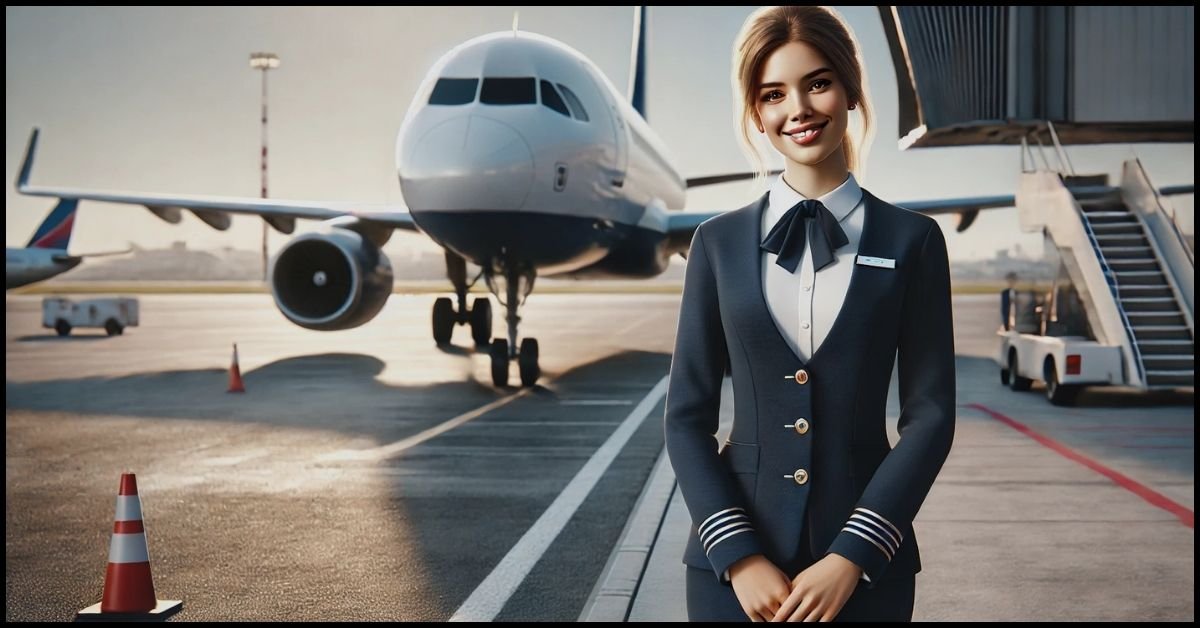Introduction to Emily University of Mississippi Flight Attendant
For many, the idea of becoming a flight attendant conjures up visions of global adventures, diverse cultural experiences, and the excitement of a life spent soaring through the skies. Emily, a proud alumna of the University of Mississippi, embarked on this very journey. Her story is not only about breaking into a competitive industry but also about pursuing a career filled with wanderlust and personal growth. This article delves into Emily’s transformation from a university student into a skilled flight attendant, emphasizing the importance of perseverance, adaptability, and the lessons she learned along the way.
From University Dreams to Skies: Emily’s Academic Background
Emily’s story began at the University of Mississippi, where she pursued a degree that would shape her critical thinking and communication skills—essential qualities for a flight attendant. Her university years were full of academic challenges, social interactions, and community involvement, all of which prepared her for her eventual career in the aviation industry.
The University of Mississippi Experience
The University of Mississippi, known for its rigorous academic programs and vibrant campus life, offered Emily a space to grow both intellectually and personally. She majored in communications, a field that honed her abilities to interact effectively with diverse groups of people—an invaluable asset in her future role as a flight attendant. Her involvement in extracurricular activities, such as public speaking clubs and student organizations, added another layer of skills that she would later find useful.
Learning Beyond the Classroom
Emily’s university experience was not confined to textbooks and lectures. She participated in study-abroad programs and attended career workshops that opened her eyes to various professional paths, including aviation. Emily recalls how these programs expanded her worldview, reinforcing her dream of working in a field that would allow her to travel and connect with people from all corners of the world.
The Turning Point: Choosing the Flight Attendant Career Path

While many of her peers at the University of Mississippi were choosing conventional career paths, Emily felt a pull toward something more adventurous. The idea of becoming a flight attendant seemed thrilling and daunting. She knew it would be a highly competitive field, requiring not just a passion for travel but also discipline, resilience, and top-notch customer service skills.
Inspiration and Early Influences
Emily often credits her passion for travel to her family, who instilled in her a love for exploring new places. Weekend trips and family vacations sparked her wanderlust, and the idea of making a career out of travel was too tempting to ignore. Additionally, stories from alums who had pursued unconventional careers gave her the courage to chase her dreams.
Researching the Industry
Before making her final decision, Emily conducted thorough research on what it meant to be a flight attendant. She attended recruitment events, spoke with industry professionals, and even took part in mock interviews to prepare herself for the stringent selection process. This period of exploration solidified her determination and set her on the path to applying for flight attendant roles.
The Application and Training Process: A Grueling Yet Rewarding Journey
Landing a job as a flight attendant is no easy feat. Emily’s first hurdle was the extensive application process, which required a polished resume, a compelling cover letter, and passing a series of interviews. The selection criteria were strict, with airlines looking for candidates who could demonstrate impeccable communication skills, cultural sensitivity, and a calm demeanor in stressful situations.
Mastering the Interviews
The interview process tested Emily’s patience and adaptability. From situational questions to role-play exercises, she had to prove her ability to handle emergencies, manage irate passengers, and maintain a professional attitude. Thanks to her university training and experiences, Emily was well-prepared to tackle these challenges. She made a point of showcasing her background in communication and her ability to work effectively as part of a team.
The Intense Training Program
After successfully securing a job offer, Emily embarked on a rigorous training program that lasted several weeks. The curriculum covered everything from aviation safety and emergency protocols to first aid and customer service. Training days were long and demanding, but Emily remained motivated, knowing that each skill she learned would be crucial for her future responsibilities.
Life as a Flight Attendant: The Reality Behind the Glamour
Once Emily completed her training, she officially started her career as a flight attendant. Although glamorous from an outsider’s perspective, the job was far from easy. Emily’s day-to-day life involved balancing erratic schedules, adjusting to different time zones, and ensuring passenger safety and comfort—all while wearing a constant smile.
Challenges and Adaptability
One of the most significant challenges Emily faced was dealing with jet lag and fatigue. Early mornings, late nights, and back-to-back flights often made her job exhausting. Yet, her passion for the role kept her going. Emily learned to adapt, incorporating techniques like napping strategically and staying hydrated to keep her energy levels up. Additionally, she mastered the art of handling challenging passengers and defusing tense situations with grace.
The Rewards of the Job
Despite the challenges, the job came with its share of unforgettable experiences. Emily found immense satisfaction in witnessing stunning sunrises from above the clouds and forming friendships with her fellow crew members. Every flight was an opportunity to meet new people and experience different cultures, making the sacrifices well worth it.
The Impact of Her University Education on Her Career
Reflecting on her journey, Emily often acknowledges how her education at the University of Mississippi played a pivotal role in shaping her career. The skills she developed in university seamlessly translated to her job, helping her navigate the complexities of the aviation industry.
Communication is Key
Emily’s degree in communications gave her an edge when interacting with passengers and crew members. Effective communication is at the heart of being a successful flight attendant, whether it’s making safety announcements or calming a nervous flyer. Her academic training helped her convey information clearly and confidently.
The Importance of a Growth Mindset
University life also taught Emily the value of continuous learning and self-improvement. This mindset has been instrumental in her career, allowing her to embrace feedback and seek opportunities for advancement. Emily has even begun to consider future roles within the aviation industry, such as working in airline management or as a flight instructor.
FAQs
How did Emily’s education at the University of Mississippi prepare her for being a flight attendant?
Emily’s education in communications equipped her with excellent interpersonal and problem-solving skills, crucial for handling the responsibilities of a flight attendant. Her involvement in extracurricular activities also fostered her teamwork and leadership abilities.
What are the biggest challenges Emily faces as a flight attendant?
Some of the biggest challenges include dealing with irregular work hours, jet lag, and the pressure to remain calm in emergencies. Emily has learned to manage these difficulties through experience and self-discipline.
Why did Emily choose to become a flight attendant?
Emily’s passion for travel and interacting with diverse groups of people inspired her to pursue this career. The idea of turning her love for exploration into a profession was irresistible.
What advice does Emily have for aspiring flight attendants?
Emily advises aspiring flight attendants to be prepared for a demanding yet rewarding career. She emphasizes the importance of resilience, excellent communication skills, and a genuine passion for customer service.
How does Emily handle difficult passengers or emergencies?
Emily relies on her training and communication skills to handle challenging situations. She remains calm and collected, using de-escalation techniques to resolve conflicts and ensure passenger safety.
What future goals does Emily have in the aviation industry?
Emily hopes to explore other roles within the aviation industry, such as airline management or flight training, as part of her long-term career growth.
Conclusion
Emily’s journey from the University of Mississippi to becoming a flight attendant is a testament to the power of ambition, adaptability, and lifelong learning. Her story is one of adventure and perseverance, proving that with the right mindset, dreams really can take flight. For those inspired by Emily’s path, the skies are truly the limit.

